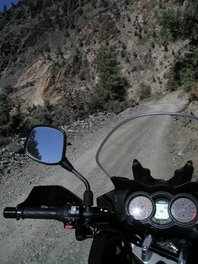Piet sez—Pietin sözleri
Friday, December 26, 2025
Joke
Horror vs. Real Life
Cammies
Age 9: decide to wear "army clothes" whenever possible.
Age 13: join cadet group: wear suckass fatigues. Plot to improve situation.
Age 16: continue to wear various suckass green fatigues b/c cargo pants uniforms unavailable.
Become familiar with genuine tigerstripe cammies my friend Brian has somehow acquired.
Age 18: spend entire life savings on crummy post-Vietname War commercial tigerstripe fatigues: 40 bucks.
Age 20: get groovy German cammies, arcane Desert Night cammies, wear all over Europe.
Tell GF that I have decided to try to acquire every camouflage pattern in the world.
She replies that I would then have exactly 2 patterns. Relationship does not last.
Age 24 or so: decide to finally get serious about camo. Cover office/guest room with camo jackets
on cardboard to display their pattern, make camo director’s chair seats. Mix camo jackets with jeans.
Age 30 or so: transition from camo jackets to camo pants, mix with plaid shirts [Pendletons!]
Focus on few, cool patterns.
Age 35 or so: own approximately 7 camouflage patterns.
Age 40 or so: get multiple patterns in order to ease wear on few patterns, extend usefulness.
Age 50 or so: discover that exotic patterned fabric is much easier to find than exotic patterned pants that fit.
Begin making pants. Start a Facebook page called Bad Camo, chronicling camo that is silly, stupid, and fascinating.
Age 55 or so: reach point that I can go an entire summer off from the school year wearing a different
pattern each day.
Age 58: own 7 different Vietnam Tigerstripe patterned pants alone. See Age 35 or so.
Age 60 or so: realize that by any objective metric, I have far too many pairs of camo pants.
Age 62: realize that I have be a much more stylish fucker wearing non-camouflage pants.
The too much camo remains.
Marriage
Highly Advanced Motorcycle Hipster
On the Black Block, February, 2017
The Four Sights
Prince Gautama Siddharta lived a sheltered life. His courtesans contrived to keep him away from the harsh reality of real life outside the palace walls.
